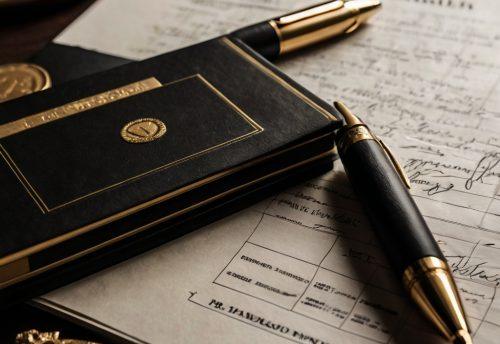
How NRIs Can Obtain a Succession Certificate in India: A Complete Legal Guide
For Non-Resident Indians (NRIs) inheriting assets in India—such as bank accounts, shares, or financial instruments—a succession certificate is often essential. Without it, institutions will not legally release or transfer the deceased’s assets. Navigating this bureaucratic and legal process from abroad can be daunting.
This guide outlines every step for NRIs to legally obtain a succession certificate in India, and how our boutique international law firm can streamline this complex process with discretion, precision, and expertise.
What is a Succession Certificate?
A succession certificate is a legal document issued by an Indian civil court that authorizes the rightful heir(s) to access and manage the movable assets—such as bank accounts, shares, and debts—of a deceased person when there is no will (intestate succession).
Step-by-Step Guide: How NRIs Can Obtain a Succession Certificate in India
1. Identify the Jurisdiction
File the petition in the district court where:
- The deceased last resided, or
- The assets in question are located.
2. Draft and Prepare the Petition
The petition must include:
- Full name and date of death of the deceased
- Permanent address and last known residence
- Comprehensive list of assets and debts
- Details of legal heirs with proof of relationship
3. Gather Required Documents
Prepare and submit:
- Original or certified death certificate
- Legal heir certificate, birth/marriage proof
- NRI’s passport, visa, or OCI card
- Duly sworn affidavit and required court fee (typically 2–5% of the asset’s value, based on state law)
4. File the Petition in Court
Submit the complete petition with supporting documents at the appropriate district court. Payment of the court fee is mandatory and varies across Indian states.
5. Public Notification
The court issues a public notice in a local newspaper, typically with a 45-day objection window. If no one contests, the process proceeds smoothly.
6. Court Hearings and Verification
Either the NRI heir or their authorized legal representative (lawyer/agent in India) must attend court hearings. The judge may require oral statements or additional verification documents.
7. Issuance of Succession Certificate
Once satisfied, the court will issue the succession certificate, authorizing the NRI to legally manage and transfer the deceased’s movable assets.
Key Considerations for NRIs
- Legal Representation: NRIs can authorize a lawyer or close family member in India via a Power of Attorney to act on their behalf.
- Timeline: The process typically takes 5 to 7 months, depending on court efficiency and objections raised.
- Post-Certificate Use: Use the certificate to settle debts, transfer funds, or liquidate financial holdings. Ensure full compliance with FEMA regulations when repatriating funds.
How can HelenPariLaw Simplifies the Process for NRIs
We specialise in inheritance and asset management for High-Net-Worth and Non Resident Indians worldwide. Here’s how we help:
- End-to-End Legal Representation in Indian courts
- Preparation & Filing of Succession Petitions
- Verification & Collection of Heirship Documents
- Power of Attorney Execution & Compliance
- Transparent Communication from Abroad
- Post-Issuance Asset Transfer & FEMA Advice
We act with confidentiality, integrity, and speed, giving our clients peace of mind while preserving their legacy.
Disclaimer: The information provided in this article is intended for general awareness and does not constitute legal advice. Succession and inheritance matters can vary significantly depending on individual circumstances, applicable personal laws, and asset locations. If you are an NRI seeking clarity on obtaining a succession certificate in India or handling estate matters, we welcome you to schedule a confidential consultation to explore your legal options.



Leave a Comment